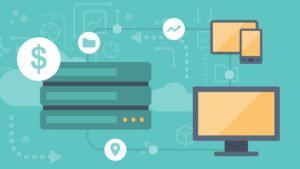Disclosure: Sportshubnet is supported by its audience. When you purchase through links on our site, we may earn an affiliate commission. Learn More.
In this post, we will check out how to choose the best personal finance software for you.
Managing personal finances is crucial for achieving financial stability and reaching long-term financial goals.
One of the best ways to keep track of your finances is by using personal finance software. With so many options available in the market, choosing the right one can be overwhelming.
Personal finance software can help you with budgeting, tracking expenses, monitoring investments, and generating reports to analyze your financial standing.
Some software also offers additional features like bill payment reminders, investment tracking, and tax preparation.
Before choosing personal finance software, it’s essential to consider your specific needs and preferences.
For example, if you’re a beginner, you may want software that’s easy to use and offers tutorials. If you’re an investor, you may want software that has robust investment tracking and analysis tools.
By taking the time to evaluate your needs, you can select the best personal finance software that fits your requirements and helps you achieve your financial goals.
How to Choose the Best Personal Finance Software
What is Personal Finance Software?
Personal finance software is computer programs or applications that help individuals manage their personal finances, including budgeting, tracking income and expenses, and monitoring investments.
These tools often provide features such as automatic categorization of transactions, bill reminders, and the ability to analyze and track progress toward financial goals.
Personal finance software can be used on a desktop computer, laptop, or mobile device, and may be free or require a subscription fee.
They also help you generate reports and charts, and other features that can help individuals better understand their financial situation and make informed decisions about their money.
How personal finance software can help you?
- It can provide a comprehensive view of your financial situation by allowing you to input all your income, expenses, debts, and assets in one place. This can help you identify areas where you may be overspending or under-saving and make necessary changes to improve your financial health.
- It can help you manage your budget by providing tools to track your spending, set and monitor financial goals, and create a plan to reach those goals. This can help you stay on top of your finances and avoid overspending.
- It can help you automate your finances by allowing you to link your accounts and credit cards to the software so that transactions are automatically entered and categorized. This can save you time and reduce the risk of errors or missed transactions.
- It can provide alerts and reminders to help you stay on track with your financial goals and avoid late fees or penalties. For example, the software can alert you when bills are due, or when you are approaching your credit limit.
- It can provide valuable insights and analysis of your financial data, such as trends in your spending, how much you are saving, and how your investments are performing. This can help you make more informed financial decisions and improve your long-term financial outlook.
What are the Features of Personal Finance Software?
- Budgeting tools: Personal finance software typically includes tools to help users create and manage budgets, track income and expenses, and set and monitor financial goals.
- Investment tracking: Many personal finance software programs include features to help users track their investments and monitor their performance.
- Debt management: Some personal finance software includes tools to help users manage their debt, such as credit cards, loans, and mortgages.
- Bill payment reminders: Many personal finance software programs include features to remind users when bills are due, helping them avoid late payments and potential fees.
- Banking and credit card integration: Personal finance software often allows users to link their bank and credit card accounts, making it easier to track spending and manage their finances.
- Tax preparation: Some personal finance software programs include features to help users prepare and file their taxes, such as tax deductions and tax-saving tips.
- Report generation: Many personal finance software programs offer reports and visualizations to help users understand their financial situation and make informed decisions.
- Security: Personal finance software typically includes security features, such as encrypted data storage and password protection, to keep users’ financial information safe and secure.
- Mobile compatibility: Many personal finance software programs are compatible with mobile devices, allowing users to access and manage their finances on the go.
- Customer support: Most personal finance software companies offer customer support, either through phone, email, or live chat, to help users with any questions or issues they may have with the software.
What to look for when choosing the best personal finance software for you?
- Compatibility with your computer and mobile devices
- The range of financial tools and features offered
- User-friendly interface and ease of use
- Integration with your bank and other financial accounts
- Customizable budgeting and financial planning options
- Security and privacy measures to protect your financial information
- Customer support and user resources, such as tutorials and forums
- Price and available discounts or free trial options.
What are the Benefits of Personal Finance Software?
- Improved organization: Personal finance software allows users to easily track and organize their financial information, including income, expenses, investments, and debts. This can help individuals better manage their finances and make more informed decisions.
- Enhanced budgeting capabilities: Many personal finance software programs come equipped with tools that help users create and manage budgets. This can help individuals better control their spending, identify areas where they can save money, and reach their financial goals.
- Accurate and timely reports: Personal finance software can generate reports that provide a detailed overview of an individual’s financial situation. These reports can be used to monitor progress and make changes as needed to stay on track.
- Simplified tax preparation: Many personal finance software programs offer features that help users prepare their tax returns. This can save time and money, and reduce the risk of errors.
- Improved security: Personal finance software typically includes features that help protect users’ financial information from unauthorized access. This can provide peace of mind and help prevent identity theft and other financial crimes.
- Convenience: Personal finance software can be accessed from a variety of devices, including smartphones, tablets, and computers. This allows users to manage their finances from anywhere, at any time.
What are the Latest trends in Personal Finance Software?
- Integration with investment and retirement planning tools.
- Automated budgeting and expense tracking.
- Collaborative features for managing finances with a partner or financial advisor.
- Mobile accessibility and convenience.
- Artificial intelligence and machine learning for personalized financial advice and suggestions.
- Increased focus on security and data protection.
- Integration with popular payment and banking apps.
- Customizable and flexible reporting options.
How to choose the right Personal Finance Software?
When choosing personal finance software, there are several factors to consider. First, think about what you need the software to do. Do you need help with budgeting, tracking your spending, or creating a long-term financial plan? Different software programs have different features, so it’s important to choose one that meets your specific needs.
Next, consider the user-friendliness of the software. You want to choose a program that is easy to use and navigate so that you can easily access the information you need.
Additionally, consider the cost of the software. Some programs are free, while others may have a monthly or annual subscription fee. Make sure to choose a program that fits within your budget.
Finally, look for software that has a good reputation and is backed by a reputable company. Read reviews from other users and check out the company’s website to learn more about its product and support offerings.
Overall, the right personal finance software for you will depend on your individual needs and preferences. Take the time to research and compare different options to find the one that best fits your situation.
Inbox looking a bit bland?
Better sign up to our blog to cram it full of trending Sports, Gaming & Tech updates.




